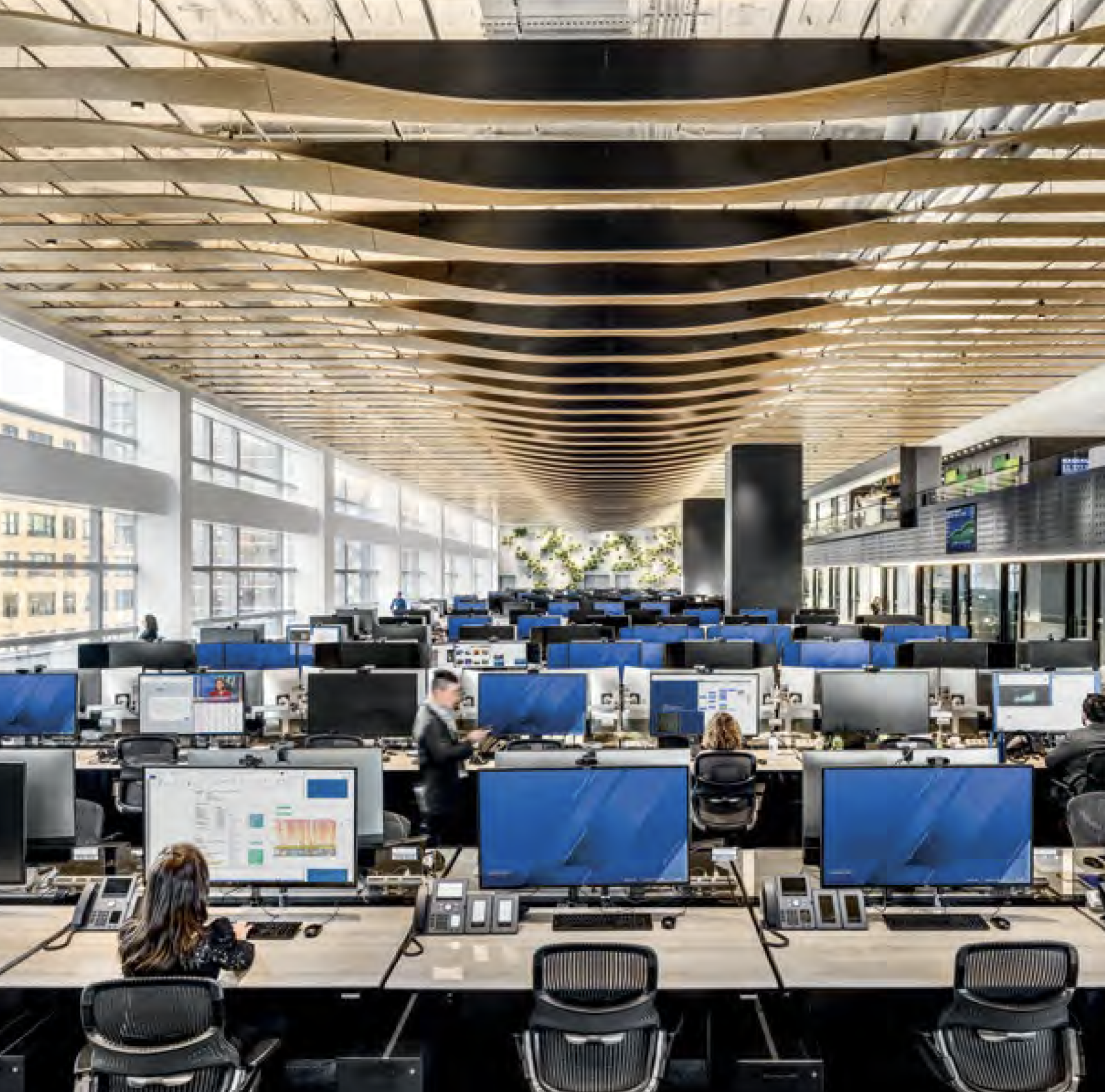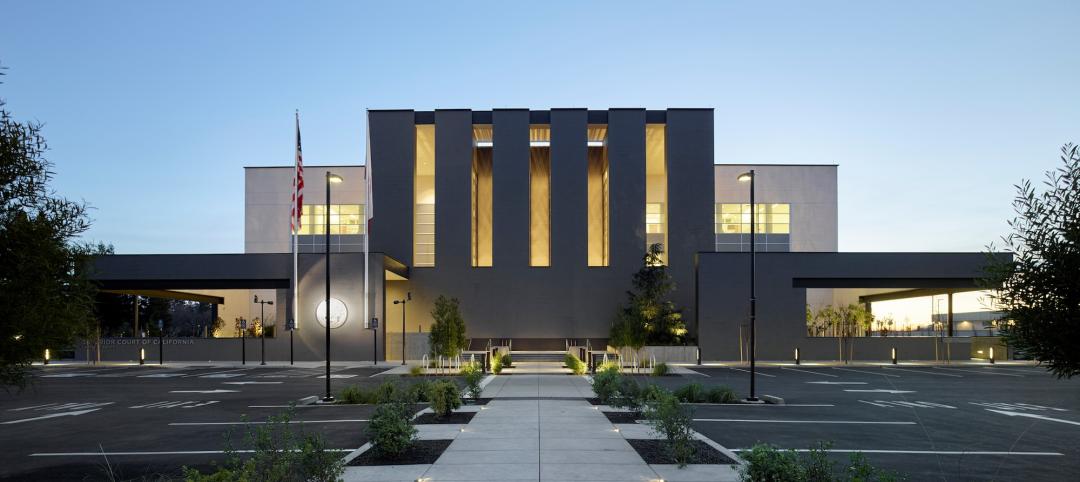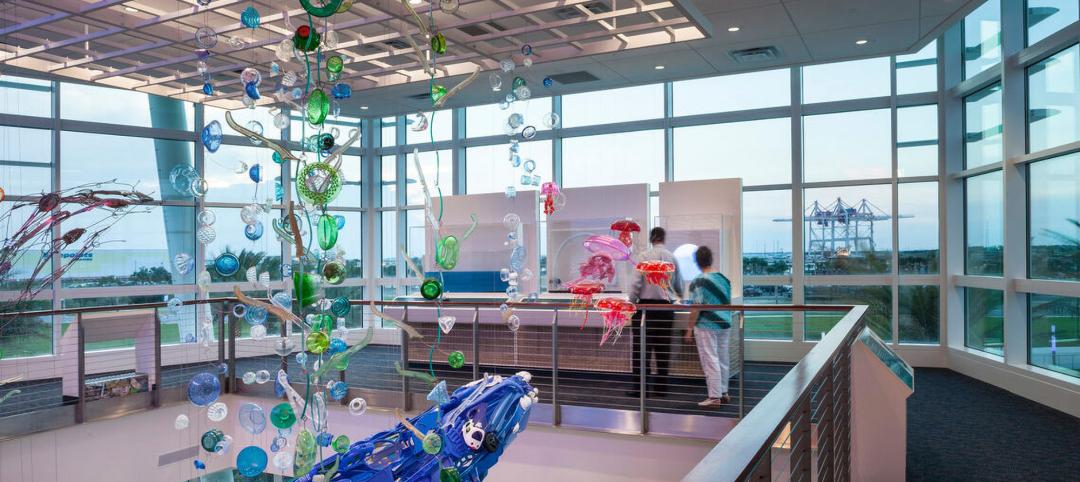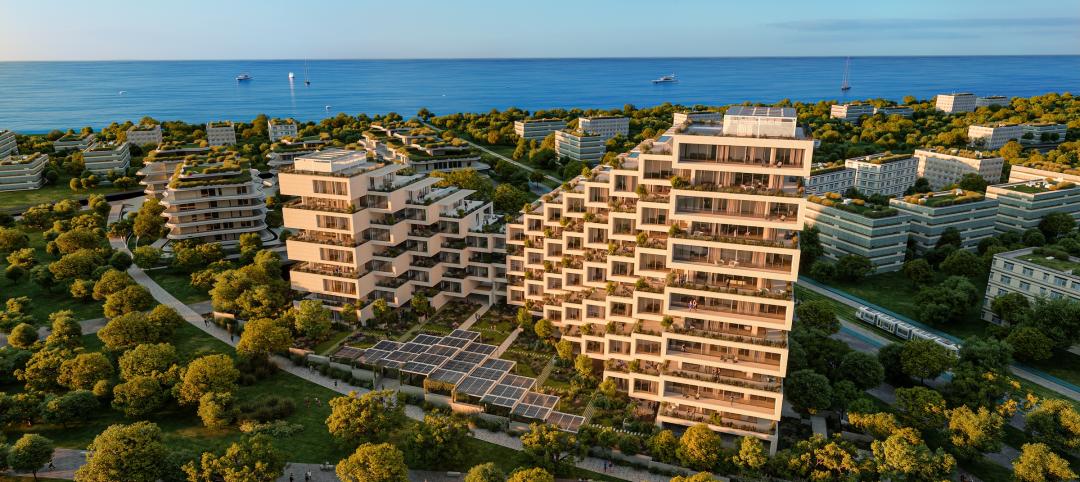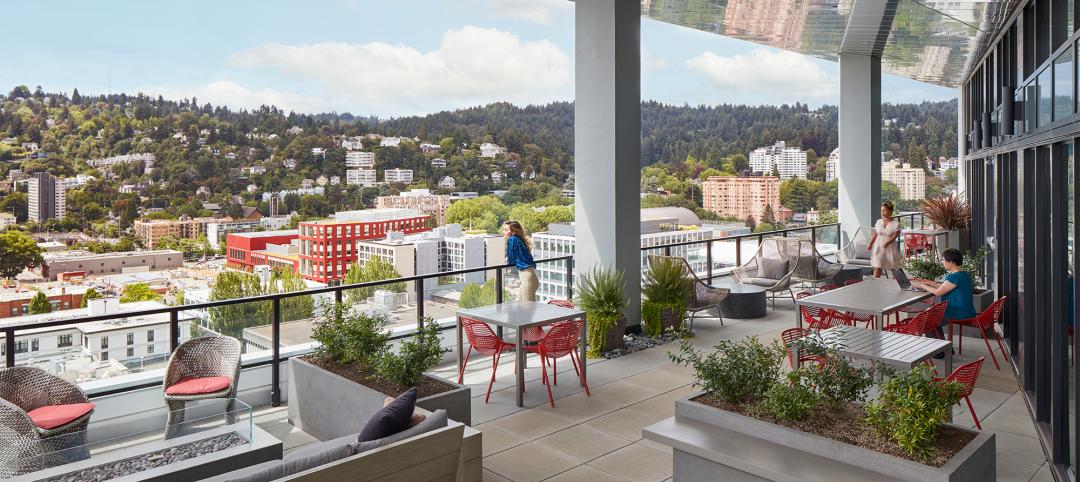Social equity and climate change are the elephants in the room hovering over Gensler’s Design Forecast for 2022, which the giant architecture firm released this week.
Drawing from a wide range of research sources, including its own, Gensler maps out what it sees as the top trends and strategies for its 28 practice areas, organized under the headings Cities, Work, Lifestyle, and Health. (The Report can be downloaded at https://bit.ly/3ILhHxf.)
The report is, in the main, optimistic, with dollops of wishful thinking. But Gensler, which generated $1.235 billion in revenue last year, is also clear-eyed and fact-informed about the challenges that lie ahead and the extent that design can help meet and exceed them. “An ongoing resilience is defining the built environment,” write the firm’s co-CEOs Diane Hoskins, FAIA, IIDA, and Andy Cohen, FAIA.
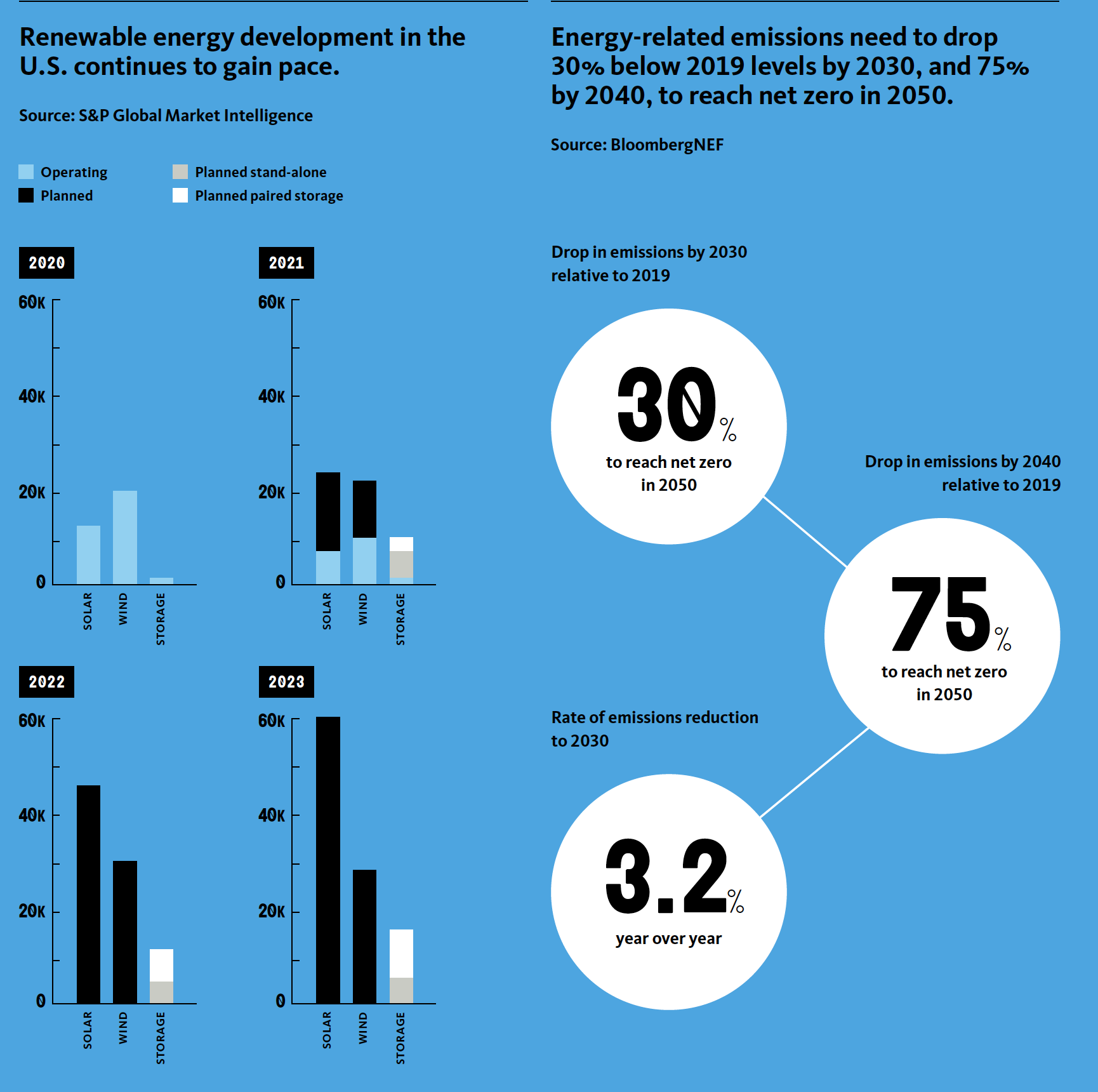
They see a world where innovation is accelerating, where cities are becoming more walkable and greener, where holistic design places greater emphasis on enhancing human experience, and where places “honor local context, while considering the health of occupants and planet alike.” To that end, Gensler has taken action to improve long-term resilience and sustainability of the construction industry’s supply chain by developing a new “blueprint” for specifying lower-carbon products and promoting locally extracted and manufactured materials. Gensler’s stated goal is to achieve carbon neutrality in all its work within a decade. “Never has there been a greater opportunity for the building industry to act on climate change,” the Report states.
STARTLING STATISTICS
The 91-page Design Forecast is a reservoir of information, some of which are likely to stop readers in their tracks. For example, one of the Health sector’s demographic predicaments is that, for the first time in human history, more of the population will be over 65 years old than under 18. “This changes everything,” states Gensler, in terms of how healthcare facilities will be designed to function and serve their constituencies.
Another stat, based on Gensler’ own research, found that fewer than half of the people surveyed in 15 locations are optimistic about their cities’ futures. And in its prognosis for the future of the workplace, Gensler—again drawing from its own research—estimates that, at a time when demand for commercial real estate is in flux, top-performing companies are three times more likely to increase their real estate footprint.
Sprinkled throughout the Forecast are images of Gensler’s projects that, according to the firm, have responded to different needs. For example, the Nashville entertainment district Fifth + Broadway addresses what people want from cities: convenience, community, and accessibility. This mixed-use district blends retail, workplace, residential, restaurants, music, and sports. In Austin, a 140,000-sf built-to-suit office building for Whole Foods Market’s headquarters features extended floor plates that provide interior protection from the sun, public areas with biophilic elements, and an outdoor terrace that doubles as alternative workspace.
20 METATRENDS IN PLAY
Gensler’s Design Forecast revolves around its identification of metatrends that it believes will influence client demand and the firm’s work in each of its sectors and practices. Some of these trends are not new, but have yet to achieve fruition, or have been recast by events such as the COVID-19 pandemic or the so-called Great Resignation that is restirring the job market.
The metatrends, in short, are predicted as follows:
Cities:
•A flexible public realm will deliver a more resilient future
•20-minute neighborhoods will drive equity
•Climate action demands will advance a path to net-zero
•Cities and organizations will refocus on regeneration and reuse
•Innovation districts will continue to thrive
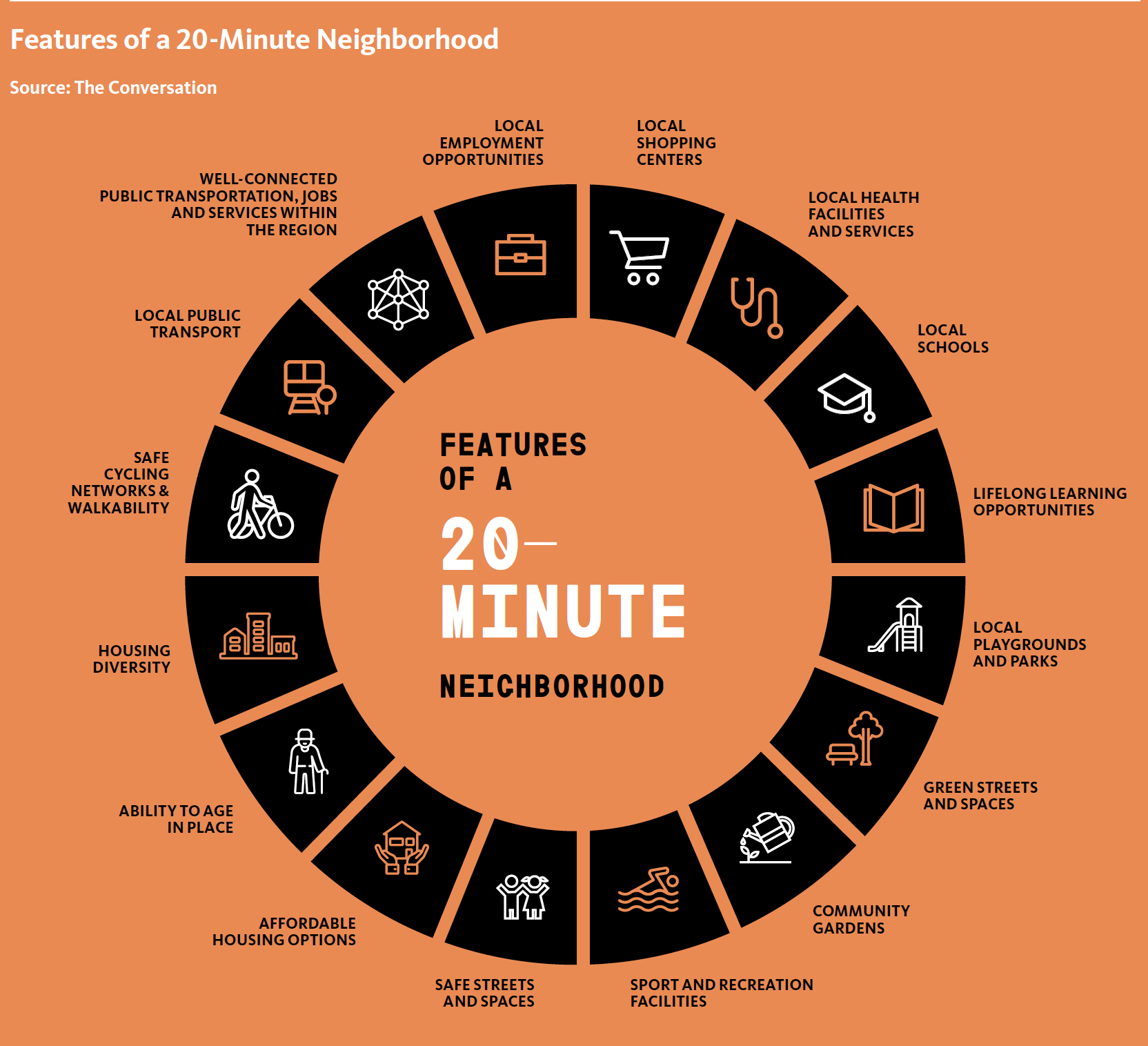
Workplace:
•The workplace must be a compelling destination
•Experimentation, prototypes, and learning are the new normals
•The workspace will play a critical role in fostering equity and inclusion
•The new workspace ecosystem will include “third” spaces for such things as coworking
•Investments in health and well-being will deliver value for employees
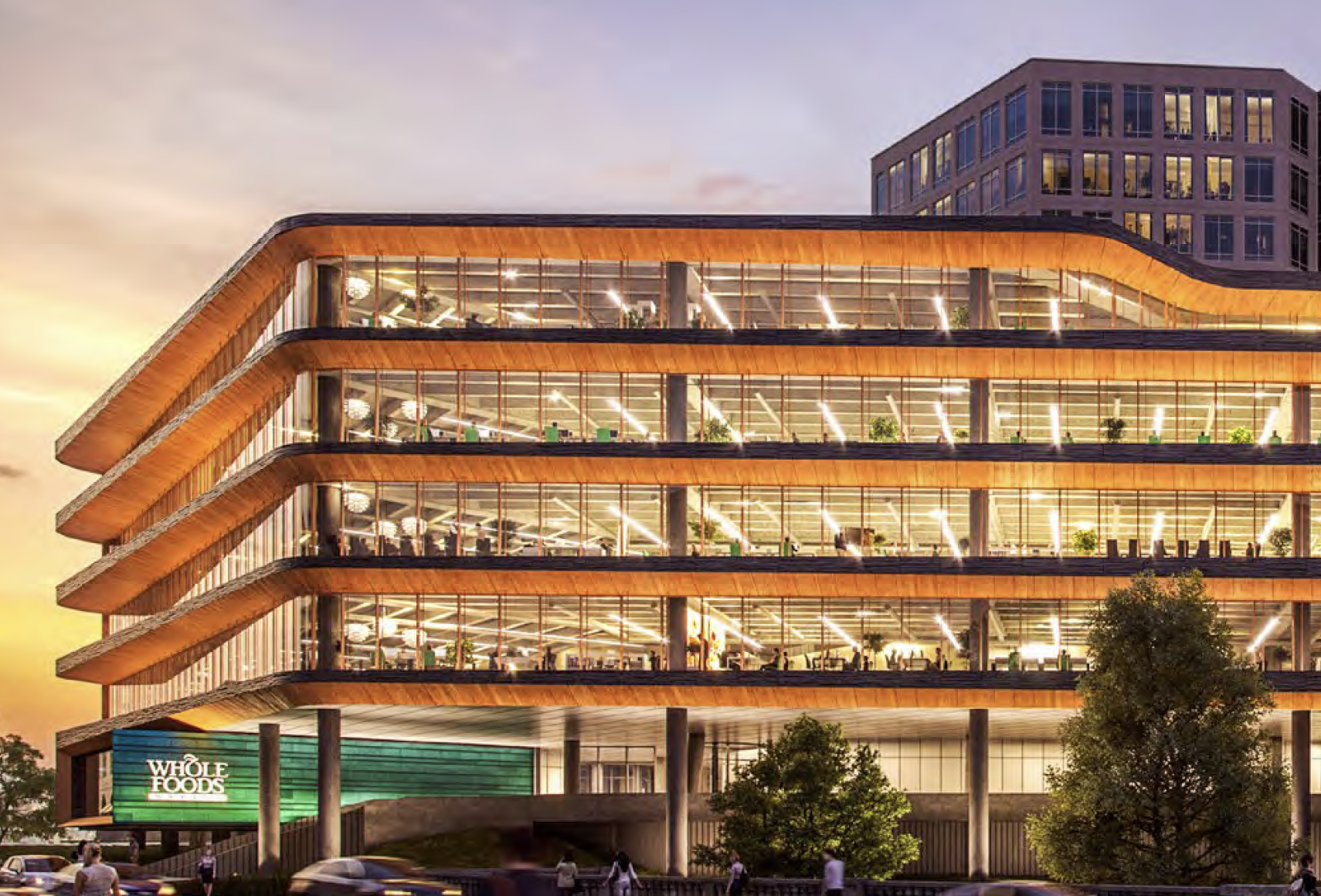
Lifestyle:
•Belonging and placemaking will bring people together
•Amenities that drive community will be highly valued
•Flexibility will become a critical investment
•Digital and physical will blend to deliver connected experiences
•Places for gathering will become neighborhood catalysts
Health:
•Design for resilience, and design that elevates human health, are one in the same
•More of the population will be over 65 than under 18 for the first time in human history
•Science organizations will set the tone for how we act in climate change and health
•Existing aging building stock cannot be ignored
•Designing “to the edges” of society will create more welcoming and supportive environments.
The report does deeper dives into each of its practices to signal dynamics and to suggest viable design strategies. Take data centers, upon which the world’s information, research, financial, and ecommerce grids increasingly rely: while acknowledging that hyperscale data centers account for half of the total investment in that sector, Gensler hops on the edge bandwagon, proclaiming edge data centers as “the next frontier” that will feed the growth of next-generation technologies. This sector is also looking for ways to reduce its energy consumption and carbon footprint by embracing low-impact materials and energy recovery. Gensler talks up the benefits of designing data centers for immersive cooling systems that submerge servers in liquid.
Related Stories
Architects | Jan 10, 2024
Award-winning civic design firm RossDrulisCusenbery joins DLR Group
DLR Group today announced the acquisition of Sonoma, California based civic and public safety design firm RossDrulisCusenbery (RDC). The addition of RDC adds focused design excellence of new building types to DLR Group’s global Justice+Civic studio.
Museums | Jan 8, 2024
Achieving an ideal visitor experience with the ADROIT approach
Alan Reed, FAIA, LEED AP, shares his strategy for crafting logical, significant visitor experiences: The ADROIT approach.
Designers | Jan 8, 2024
DLR Group adds executive leaders
DLR Group Chief Executive Officer Steven McKay, AIA, RIBA, announced new executive leaders for the 100% employee-owned, globally integrated design firm.
AEC Tech | Jan 8, 2024
What's driving the surge of digital transformation in AEC today?
For centuries, the AEC industry has clung to traditional methods and legacy processes—seated patterns that have bred resistance to change. This has made the adoption of new technologies a slow and hesitant process.
K-12 Schools | Jan 8, 2024
Video: Learn how DLR Group converted two big-box stores into an early education center
Learn how the North Kansas City (Mo.) School District and DLR Group adapted two big-box stores into a 115,000-sf early education center offering services for children with special needs.
Green | Jan 8, 2024
DOE releases RFI on developing national definition for a Zero Emissions Building
The Department of Energy released a Request for Information (RFI) for feedback from industry, academia, research laboratories, government agencies, and other stakeholders on a draft national definition for a Zero Emissions Building.
Codes and Standards | Jan 8, 2024
Australia to be first country to ban engineered stone countertops
In 2024, Australia will be the first country to ban engineered stone countertops. The ban came after a years-long campaign supported by doctors, trade unions, and workers over concerns that the material was causing increased silicosis cases among workers cutting and handling it.
Roofing | Jan 8, 2024
Researchers devise adaptive roof tile concept that adjusts to ambient temperatures
Scientists at the University of California Santa Barbara published a paper that proposes adaptive roof tile technology that can adjust to ambient temperatures. Using a wax motor, tiles could switch from a heating or cooling state enabling savings on heating and cooling costs.
MFPRO+ News | Jan 4, 2024
Bjarke Ingels's curved residential high-rise will anchor a massive urban regeneration project in Greece
In Athens, Greece, Lamda Development has launched Little Athens, the newest residential neighborhood at the Ellinikon, a multiuse development billed as a smart city. Bjarke Ingels Group's 50-meter Park Rise building will serve as Little Athens’ centerpiece.
MFPRO+ Special Reports | Jan 4, 2024
Top 10 trends in multifamily rental housing
Demographic and economic shifts, along with work and lifestyle changes, have made apartment living preferable for a wider range of buyers and renters. These top 10 trends in multifamily housing come from BD+C's 2023 Multifamily Annual Report.


